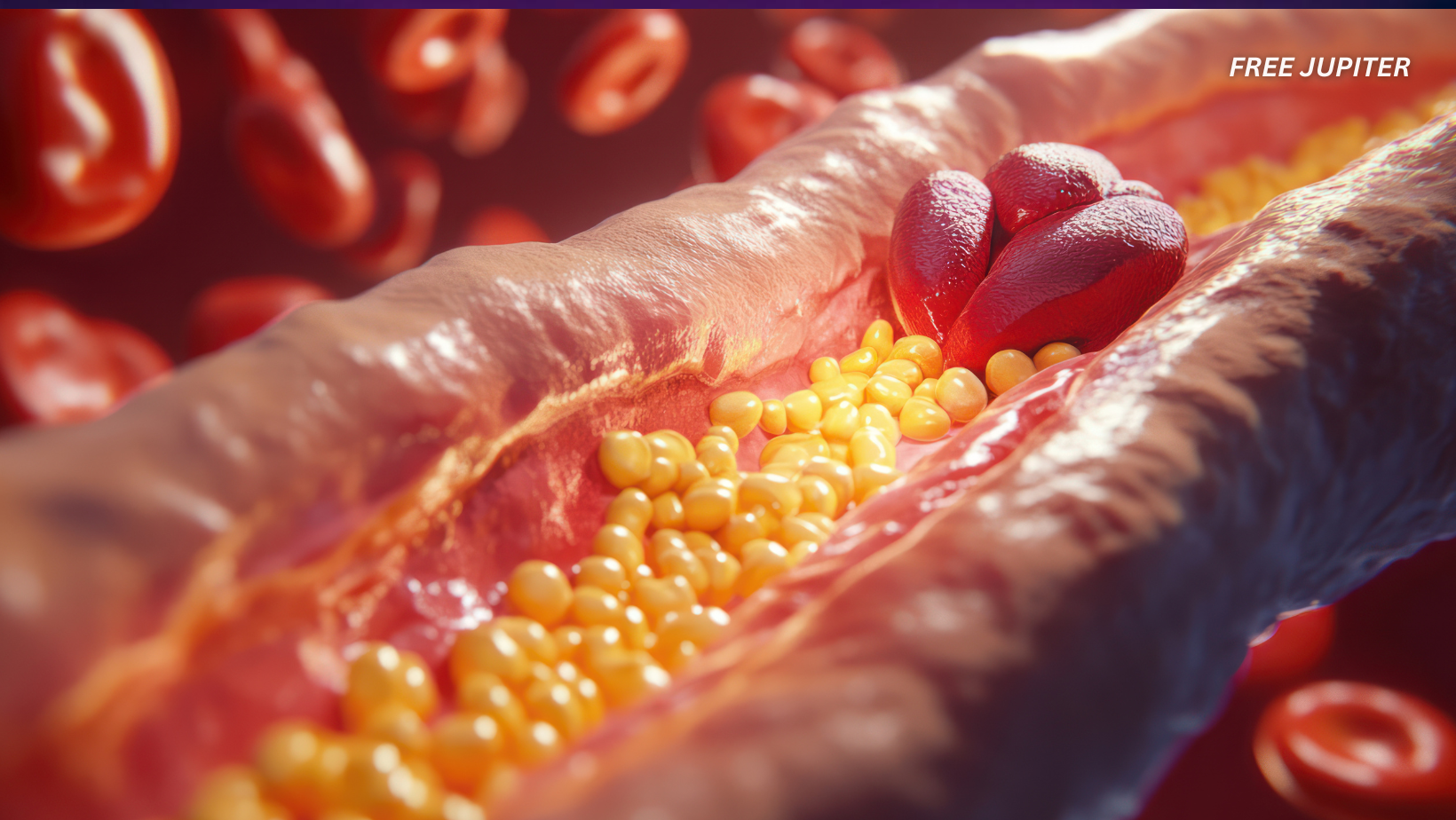Cholesterol plays a crucial role in the body, but when levels rise too high, serious health risks can follow. Heart disease and strokes are closely linked to high cholesterol, yet many people remain unaware of their levels since there are usually no noticeable symptoms. That’s why regular testing is important, especially for those over 40. Health professionals recommend getting checked every five years to monitor any changes and take action early.
Despite its importance, cholesterol remains a confusing topic. Myths about diet and lifestyle flood the internet, leading to misunderstandings. Some believe eggs are bad for cholesterol, while others claim sugar is a greater concern than fats. With so much conflicting information, it’s essential to separate fact from fiction.
What Is Cholesterol?
Cholesterol is a fatty substance naturally found in the body. It’s needed to produce hormones, such as estrogen and testosterone, and to maintain cell structure. While the body produces cholesterol on its own, diet and genetics also influence levels.
There are two main types:
- LDL (Low-Density Lipoprotein) – Often called “bad cholesterol” because excess amounts can lead to plaque buildup in arteries, increasing heart disease risk.
- HDL (High-Density Lipoprotein) – Known as “good cholesterol” because it helps remove LDL from the bloodstream, reducing the risk of blockages.
Lowering LDL and maintaining balanced levels is key to heart health.
When Should You Get Tested?
Regular cholesterol screenings are advised for those aged 40-74 every five years. Those over 75 should have yearly checks. If there is a family history of heart disease or symptoms such as chest pain, doctors may recommend earlier or more frequent testing.
Understanding Cholesterol Test Results
Cholesterol tests usually provide a total cholesterol number, but a full breakdown offers more clarity. A complete lipid profile includes:
- HDL (Good cholesterol) – Should be above 1mmol/L for men and 1.2mmol/L for women.
- LDL (Bad cholesterol) – Healthy levels are below 3mmol/L.
- Triglycerides – Another type of fat found in blood. Unused calories are stored as triglycerides, and high levels may increase heart disease risk. The ideal level is below 2.3mmol/L unless fasting before the test, in which case the limit is 1.7mmol/L.
- Cholesterol ratio – The total cholesterol divided by HDL levels. A ratio below six is considered healthy, with lower numbers being better.
How Genetics Affect Cholesterol
Lifestyle changes play a major role in cholesterol management, but genetics cannot be ignored. Some individuals inherit high cholesterol levels, a condition known as familial hypercholesterolemia. This affects roughly one in 250 people. If a close relative had a heart attack at an early age, cholesterol testing should be prioritized.
Read more: Risk Of Prostate Cancer Increases By 45% In Men Who Share This Common Practice
What Other Factors Increase Risk?
Cholesterol levels alone do not determine heart disease risk. Doctors assess multiple factors, including:
- Age
- Weight
- Smoking habits
- Alcohol intake
- Blood pressure
- Ethnicity and gender (Men tend to have higher risks)
A high-risk assessment (above 10%) often leads to a recommendation for statins, which help lower LDL levels and prevent artery blockages.
Can Lifestyle Changes Reduce Cholesterol?
For those without a genetic predisposition, lifestyle modifications can be the first line of defense. Many doctors support trying dietary changes and increased exercise before prescribing medication.
Regular physical activity improves cholesterol balance by lowering LDL and boosting HDL. A heart-healthy diet also helps reduce cholesterol naturally. The liver plays a key role by using LDL receptors to clear bad cholesterol from the body, a process enhanced by both diet and statins.
Lifestyle changes may start showing results within six to eight weeks. Some doctors recheck cholesterol levels after three months to measure progress.
Does Weight Affect Cholesterol?
Being overweight doesn’t guarantee high cholesterol, but it raises the risk. Excess weight often comes with other health issues like high blood pressure and poor diet, compounding cardiovascular risks. Losing even a small amount of weight can have a positive effect on cholesterol levels.
Best Foods for Healthy Cholesterol Levels
Certain foods help manage cholesterol naturally. Dietary fiber, especially soluble fiber, is highly effective. Found in foods like oats, beans, and lentils, this type of fiber forms a gel in the digestive tract that prevents cholesterol absorption. Just 3g of beta-glucans from oats daily can help maintain healthy cholesterol levels.
Other beneficial foods include:
- Whole grains
- Beans and lentils
- Nuts and seeds
- Fruits and vegetables
- Oily fish (rich in omega-3 fatty acids)
- Olive oil and avocado (sources of healthy fats)
A plant-based diet rich in fiber, vitamins, and healthy fats supports cholesterol balance and overall health.
Worst Foods for Cholesterol
Saturated fats have a well-established link to increased LDL cholesterol. These fats are found in:
- Processed meats (bacon, sausages, deli meats)
- Full-fat dairy products (butter, cream, cheese)
- Tropical oils (coconut and palm oil, both high in saturated fats)
Replacing saturated fats with unsaturated fats is key to reducing heart disease risk. Sugary foods should also be limited, as they contribute to weight gain and metabolic issues. Ultra-processed foods often contain unhealthy fats, excess sugar, and preservatives, all of which negatively impact cholesterol levels.
Do Eggs and Shellfish Raise Cholesterol?
There is a common myth that eggs and shellfish are bad for cholesterol. While these foods contain dietary cholesterol, they have little impact on blood cholesterol. The real concern is saturated fat intake, which plays a bigger role in raising LDL levels. Most people can enjoy eggs and shellfish as part of a balanced diet. However, those with familial hypercholesterolemia may need to limit these foods under medical guidance.
When Are Medications Needed?
Statins are widely used and highly effective in reducing LDL cholesterol, typically lowering levels by 50%. For those with extremely high cholesterol, additional treatments like PCSK9 inhibitors may be considered. These newer medications target a protein in the liver that helps remove LDL cholesterol more efficiently.
The Bottom Line
Cholesterol management is about balance. While it’s essential for bodily functions, too much LDL cholesterol can cause long-term harm. Regular testing, a healthy diet, and an active lifestyle are key to maintaining optimal levels. For some, medication may be necessary, but lifestyle changes remain a powerful tool in reducing heart disease risk. Small adjustments, like swapping out unhealthy fats and adding fiber-rich foods, can make a significant difference over time.










